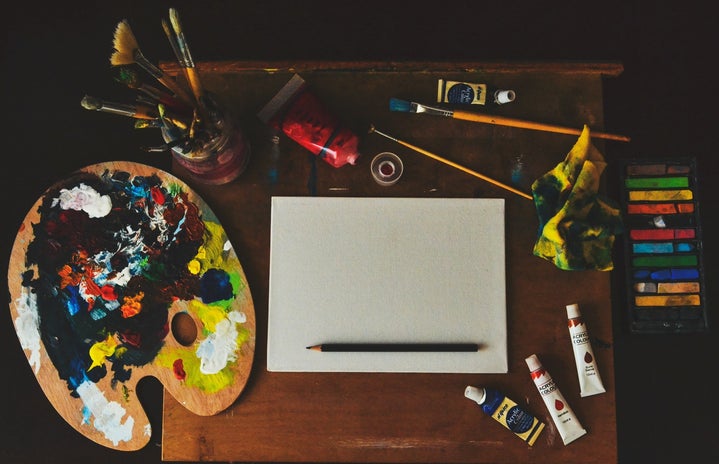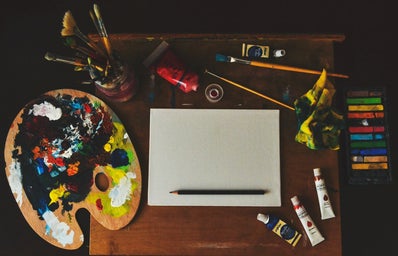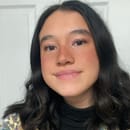Whether one’s passion lies in film, painting, music, writing, dance, or any other creative discipline, turning artistic passions into a livelihood can be an exciting dream. But as with any other career path, there are advantages and drawbacks to this which require artists to weigh their aspirations against the realities of the industry. In this article, we will explore the multifaceted world of artistic careers, featuring the professional journey of Layan Barakat!
Layan is a proud University of Windsor graduate with a B.A. in Communication, Media, and Film Studies, and she is a St.Clair College Converged Journalism graduate. Layan has gained experience in various fields, including marketing, advertising, print journalism, broadcast journalism, event planning, and public relations. Her work has appeared in The DRIVE magazine as well as Women of Windsor magazine, and she was featured in various other online magazines as a correspondent for Toronto Fashion Week. Layan also has a successful YouTube channel, Layan Bee, with more than ten thousand subscribers and 1.8 million views, where she discusses beauty, lifestyle, and everything in between. She is currently the Marketing Administrative Coordinator at the University of Windsor EPICentre, where I’m lucky to work and collaborate with her daily.
The First Encounter with Art
There’s always an initial encounter with art that you never forget. There’s the excitement and freedom you felt the first time you wrote your name in kindergarten, touched paint with your hands, drew a card for Mother’s or Father’s Day, or performed in front of your family when you were a kid.
Layan discovered her passion for art at a very young age. “My mom was nine months pregnant with me and running her gallery opening, so I’ve been surrounded by the arts my entire life. I grew up creating in different ways, and I knew that’s where my passion was,” said Layan.
I believe that what makes artists become professionals is their desire to keep that vulnerability, excitement, and freedom they felt as children and integrate it as part of growing up and building a career.
“In grade 9, a guidance counselor asked me what I wanted to be when I grew up. For some reason, I said Journalist, even though I had never given it two thoughts before. Over the next four years, I fell in love with writing, so I naturally gravitated to Journalism when choosing a program for my post-secondary education,” added Layan.
I have my degree. Now, what’s next?
University is the right place to try to live as many experiences as possible. You can fail and try again without living the repercussions of adult life, like getting fired from your job. During this time, you can find what you want to pursue, how you want to share what you do, and the message you want your work to communicate. But what happens when you’re no longer on that stage? Layan had incredible opportunities as a student. She started her YouTube channel, went to Toronto Fashion Week, worked for online magazines, and made connections with designers and artists. Still, she couldn’t find a steady job related to what she wanted to pursue.
“I took a part-time position that had nothing to do with the arts. I remember this turning moment when I thought ‘alright, Layan, you have two options: you can sit here and feel sorry for yourself, or you can do something that will speak to your soul and reignite that passion,’” commented Layan. “My job was a blessing in disguise because it allowed me to return to school to study Communication, Media, and Film. I took every opportunity to meet new people, network, join creative projects, and push myself out of my comfort zone. I got a job shortly after graduation just by putting myself out there, and now I have those lessons under my belt.”
Imposter Syndrome
I’ve noticed from experience that students take for granted the opportunities presented to them, possibly because they don’t feel professional or prepared enough. But we forget how important it is in any creative industry to make connections, to start a simple conversation, and to see what door opens for us. There is power in being a student and putting yourself out there, and letting professionals see you as passionate and as someone eager to learn; you will remind them what it was like to be in that phase of your life. Also, professionals at any stage of their careers still experience imposter syndrome, so they are still discovering what they want, just like you.
“When [Impostor Syndrome] happens, I remind myself that my body and mind have separated and that I need to ground myself. I practice meditation and gratitude as much as possible to keep me centered and from spiraling,” said Layan. “That sounds silly because I’m doing what I love and am passionate about, but I also think it’s hard to be creative when you’re going in a million different directions. In those moments of silence, if I come up with a poem or a story prompt, I quickly write it as a note on my phone so I can return to it when I can.”
Finding Your Voice
Discovering what you want your work to communicate is challenging and can be connected to feeling Imposter Syndrome. You don’t listen to your inner voice because you are scared other people might not connect with you, so you replicate another creator’s formula for “success” to succeed.
“I look back at old photos and videos and cringe because I was playing a part I thought people wanted to see,” said Layan. “It wasn’t until I dropped that and started being my authentic self that I began seeing progress in my work.”
Arts can be a competitive field. Every day, you will feel like competing with others and taking inspiration from them and them from you, which can be frustrating. What can you do to manage competition?
“We’ve all found a recipe online that we’ve wanted to try before, right? And no matter how closely we follow the instructions, it never turns out exactly like the photos or videos online because it’s our creation,” said Layan. “Even though someone’s work might be very similar to yours if you’re being authentic, it’ll always have a uniqueness that can’t be replicated.”
Finding Balance and Success
As a film student, I can’t recall all the times I’ve heard that any artistic career is not legitimate and will take me nowhere if I want to be successful in life. Most of the time, those wrong ideas spawn from concerns about money or financial stability. People are still amazed that artists earn money from selling art. But they forget that they consume art daily–in the food they eat, the movies and shows they watch after work, or the music they listen to while stuck in traffic. I always say to people who think art is not a career, “well, someone has to create all that you consume.” So you will earn money, don’t worry. However, success is not about that.
“My definition of success is feeling accomplished and satisfied with the work you’re doing,” said Layan. “There is no such thing as failure, especially in something as subjective as art. Keep improving, keep honing your skills, and remember that your only competition is yourself. Also, don’t take things too seriously. None of us are getting out of here alive, so we might as well have fun while we’re here.”


